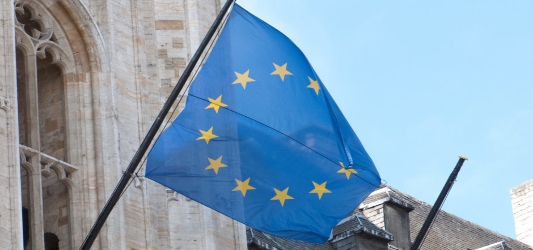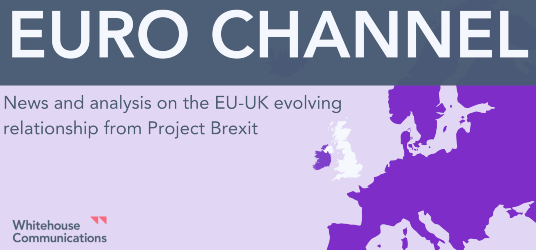On Monday 19th May, presidents of the European Commission and Council, Ursula von der Leyen and Antonio Costa, respectively, and UK Prime Minister, Keir Starmer, met for the first ever EU-UK summit since the UK departed the bloc five years ago.
In a world where global politics are being rapidly reshaped—particularly by shifting US positions on trade and security—this summit marked a pivotal moment. Both the EU and the UK approached the meeting as an opportunity to reset their relationship and explore new avenues for cooperation.
In the lead-up to the first serious forum since Brexit, intense negotiations produced a series of preliminary agreements spanning fisheries, food, defence, and even a potential youth free movement scheme. While at the summit itself, both sides explored deepening cooperation in energy, including discussions on linking their respective Emissions Trading Systems. They also agreed to strengthen collaboration on law enforcement, judicial cooperation, and tackling irregular migration.
While the finer details of these agreements will be clarified in the coming months, and more significantly, in 2026 during the review of the Trade and Cooperation Agreement (TCA), UK businesses are minded to begin preparing for a shift toward closer regulatory alignment and deeper economic integration with the EU.
One of the summit’s key outcomes was a new 12-year reciprocal access arrangement, allowing EU boats to fish in UK waters and vice versa. The UK will remain outside the EU’s fisheries rules and will retain the quota uplift agreed in the Brexit deal. While this move has already been contemplated sourly by British fishermen, it permitted the UK to secure the first steps to an agri-food deal – otherwise known as a Sanitary and Phytosanitary (SPS) agreement to reduce costs, paperwork, and delays at borders for food.
At present, the EU remains the most important trading partner for UK food and drink businesses, representing roughly 62% of exports and 76% of imports in 2024. Not only would it ease administrative burdens for businesses, the deal is also projected to benefit British consumers by improving product availability and lowering supermarket costs.
It is also hoped that the SPS agreement will help reduce the vast food safety backlog that continues to plague enforcement authorities at the border. Elsewhere, UK fisheries are also expected to benefit from deal by removing protracted physical checks for British fish exports to the EU.
However, to facilitate the free-flowing trade of foodstuffs across the channel, the UK will be forced to mirror the EU’s food standards through a process known as “dynamic alignment”.
Facilitating trade of foodstuffs across the channel will come with a specific change of direction for the UK government which will likely be required to mirror the EU’s food standards through “dynamic alignment”. While the UK has already refrained from diverging further by rejecting US chlorinated chicken or hormone-treated beef into its market in an earlier deal with Trump, it will likely have to further align with EU standards to ensure an SPS deal goes through the line with the EU.
Plainly, the UK will have to maintain reciprocal regulatory standards with the EU and vice and versa to ensure a level playing field for businesses.
In more concrete terms, the UK will have to maintain equivalent regulatory standards to the EU and vice and versa to ensure a fair level playing field for businesses. The UK may participate at technical level in setting regulatory standards in the EU while still not having the final words on such standards.
Significant headway was made on energy, both parties agreed to extend cooperation and to link ETS – thereby hoping to alleviate costs for consumers and limit trade frictions for British businesses impacted by the EU’s carbon border adjustment mechanism. They will also explore the participation of the UK in the EU’s internal electricity markets – making electricity trading swifter and opening further avenues for collaboration in the transition.
On defence, the two parties signed a new security and defence partnership restoring institutional cooperation which were disrupted by the UK’s exit from the EU, a key political centrepiece in times of geopolitical shifts and uncertainty. As part of this partnership, the UK will be invited to top-level EU meetings on the topic and cooperate on issues such as cybersecurity and participate in EU’s loans-for-arms fund.
While still politically sensitive, the British government signalled willingness to engage in discussions on the EU’s proposed Youth Mobility Scheme, which would allow individuals aged 18 to 30 to live and work more freely across borders. However, with immigration remaining a contentious topic in UK domestic politics, progress on this front is likely to be slow and uncertain.
Though the specifics of many of these agreements are still to be finalised, it would be prudent of British businesses to get ahead of the curve. A closer EU-UK relationship will inevitably have vast regulatory and commercial opportunities and challenges – so now would be the time to get stuck into the detail and assess how the swathe of incoming changes might affect your business.
At Whitehouse Communications, we specialise in helping businesses on both sides of the Channel navigate these complex waters. If your organisation needs timely insights and strategic guidance on the implications of the renewed EU-UK dialogue, our team is here to help – don’t hesitate to get in touch.


